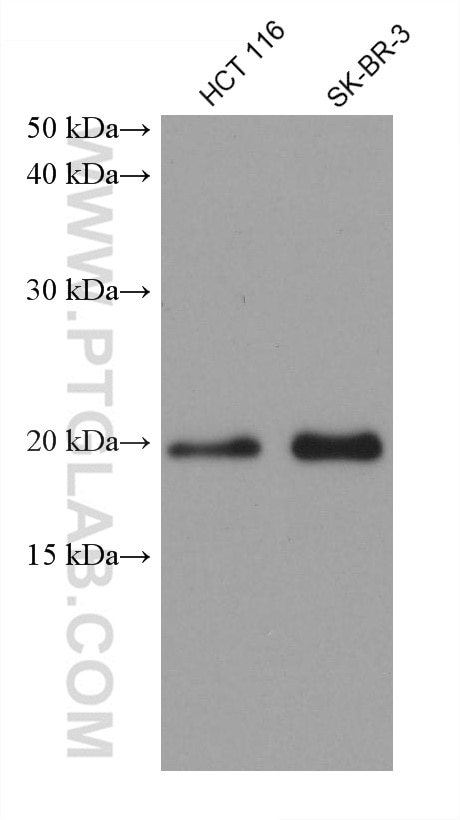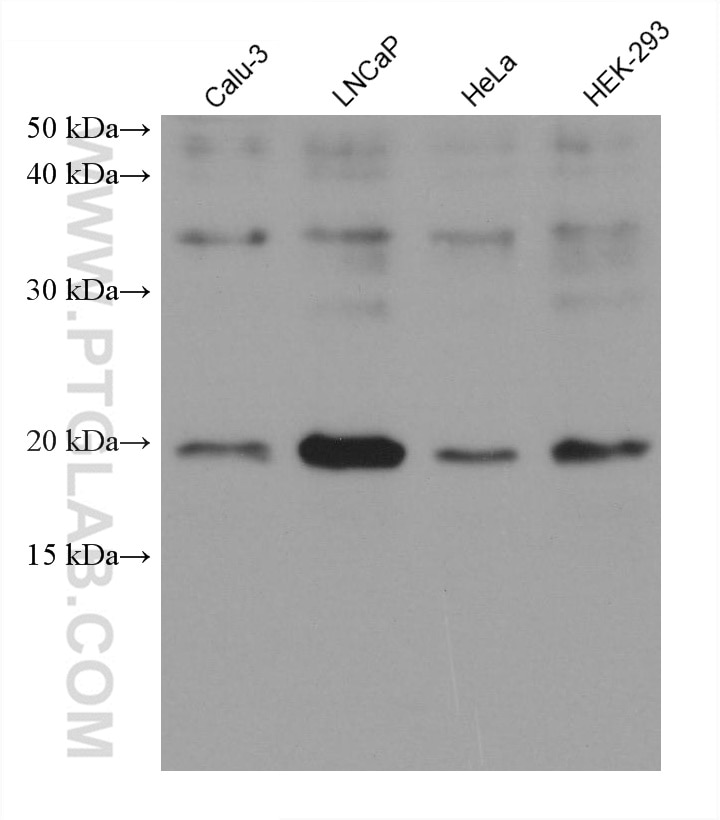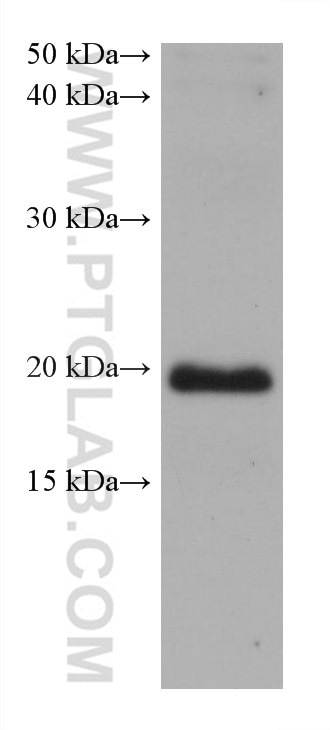Validation Data Gallery
Tested Applications
| Positive WB detected in | HCT 116 cells, Calu-3 cells, SW480 cells, LNCaP cells, HeLa cells, HEK-293 cells, SK-BR-3 cells |
Recommended dilution
| Application | Dilution |
|---|---|
| Western Blot (WB) | WB : 1:5000-1:50000 |
| It is recommended that this reagent should be titrated in each testing system to obtain optimal results. | |
| Sample-dependent, Check data in validation data gallery. | |
Product Information
68898-3-Ig targets ICT1 in WB, ELISA applications and shows reactivity with human samples.
| Tested Reactivity | human |
| Host / Isotype | Mouse / IgG1 |
| Class | Monoclonal |
| Type | Antibody |
| Immunogen | ICT1 fusion protein Ag33109 相同性解析による交差性が予測される生物種 |
| Full Name | immature colon carcinoma transcript 1 |
| Calculated molecular weight | 24 kDa |
| Observed molecular weight | 21-24 kDa |
| GenBank accession number | BC015335 |
| Gene Symbol | ICT1 |
| Gene ID (NCBI) | 3396 |
| RRID | AB_3670448 |
| Conjugate | Unconjugated |
| Form | Liquid |
| Purification Method | Protein G purification |
| UNIPROT ID | Q14197 |
| Storage Buffer | PBS with 0.02% sodium azide and 50% glycerol{{ptg:BufferTemp}}7.3 |
| Storage Conditions | Store at -20°C. Stable for one year after shipment. Aliquoting is unnecessary for -20oC storage. |
Background Information
The adult colon epithelium contains 3 differentiated cell types that arise from a multipotent stem cell. Deviation from the normal maturation pathway by neoplastic transformation is thought to initiate in stem cells or their early descendants. One potential marker is immature colon carcinoma transcript 1 (ICT1, synonym: DS-1) whose mRNA and protein were more highly expressed in undifferentiated than differentiated cells.
Protocols
| Product Specific Protocols | |
|---|---|
| WB protocol for ICT1 antibody 68898-3-Ig | Download protocol |
| Standard Protocols | |
|---|---|
| Click here to view our Standard Protocols |


